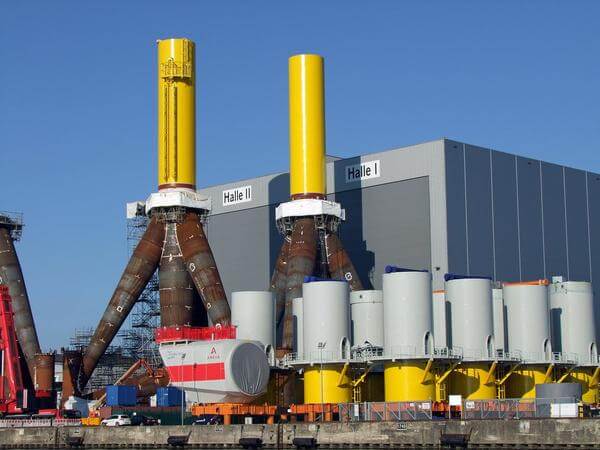News Release from windfair.net
Wind Industry Profile of
Circular economy brings enormous benefits for offshore sector
Last week, the UK offshore wind sector was in the global spotlight. The Department for Business, Energy and Industrial Strategy announced the results of the fourth round of renewable energy auctions (ScotWind), in which new projects totaling nearly 11 GW were awarded. Of this, wind energy alone accounted for 8.5 GW, most of it offshore.
So the offshore sector in the British Isles continues to boom, even though the UK has now had to relinquish its world market leadership to China. However, the emerging market for floating offshore wind farms offers new opportunities. "The scale of what is planned in UK waters, through Scotwind, is unprecedented and signals one of the biggest industrial opportunities for decades," the Global Underwater Hub stressed. WindEurope also noted the importance: "The 8.5 GW of new wind farms will help keep electricity affordable and strengthen the UK’s energy security. They’ll play a central role too in delivering the UK’s climate targets."
Crown Estate Scotland explained that nearly £25 billion of investment in the Scottish economy is planned as part of the ScotWind projects. The total investment in the supply chain of these projects is £66 billion, of which £25 billion is to be spent earmarked in Scotland.
Investment in the circular economy of the offshore sector is also needed to further increase value creation, as a new report by Offshore Renewable Energy (ORE) Catapult points out. For Scotland alone, a functioning circular economy in the offshore wind sector can reduce carbon emissions by 34% by 2030 and create 20,000 additional jobs in the UK.
The report, titled 'End of Life Materials Mapping for Offshore Wind in Scotland' (ORE Catapult in collaboration with Zero Waste Scotland), first identified what materials and in what quantities the offshore wind sector will need in the coming years up to 2050, and contrasts how these materials can be refurbished, reprocessed and recycled when wind turbines are decommissioned to reduce waste and create economic opportunities.

The offshore wind industry is materials-intensive (Image: Pixabay).
Andrew Macdonald, director of offshore wind development and operations at ORE Catapult, says: "Collaboration between offshore wind and other sectors will be crucial to accelerating circular economy technologies and supply chains. It is an exciting prospect to take this forward with industry partners, such as Zero Waste Scotland, and show how the wind turbine, the workhorse of the clean energy revolution, will take its next steps towards circularity."
Iain Gulland, Chief Executive of Zero Waste Scotland, elaborates: "With up to 90% of a turbine potentially recyclable or reusable, this report makes a compelling case for a planned circular approach to the deployment and decommissioning of the offshore infrastructure. It’s yet another example of how such an approach, where we think beyond the end of life of products and materials, we can not only make considerable carbon savings, but boost our economy through substantial job creation and development of new skills."
Decommissioning of offshore wind turbines in Scotland could generate 1.5 to 2.4 million tons of material by 2050. It is estimated that up to 492 turbines will be decommissioned in Scotland, with a further 1,718 added by 2065. In contrast, the targeted growth in offshore wind by 2050 will require 14.7 million tons of steel, 8.36 million tons of concrete, and 1.54 million tons of ductile iron. Other consumables needed include glass and carbon fibers, neodymium and copper.
The focus of investment should be on recycling in the UK itself wherever possible, rather than transporting the waste somewhere costly first. Therein lie further opportunities, because as the various developments of recent years - Brexit, COVID pandamic, war in Ukraine - have shown, short distances make sense even in times of globalization.
- Author:
- Katrin Radtke
- Email:
- press@windfair.net
- Keywords:
- Circular economy, recycling, wind energy, turbine, wind farm, offshore, sector, UK, ORE Catapult, Scotland, waste, reduction, costs, material




























